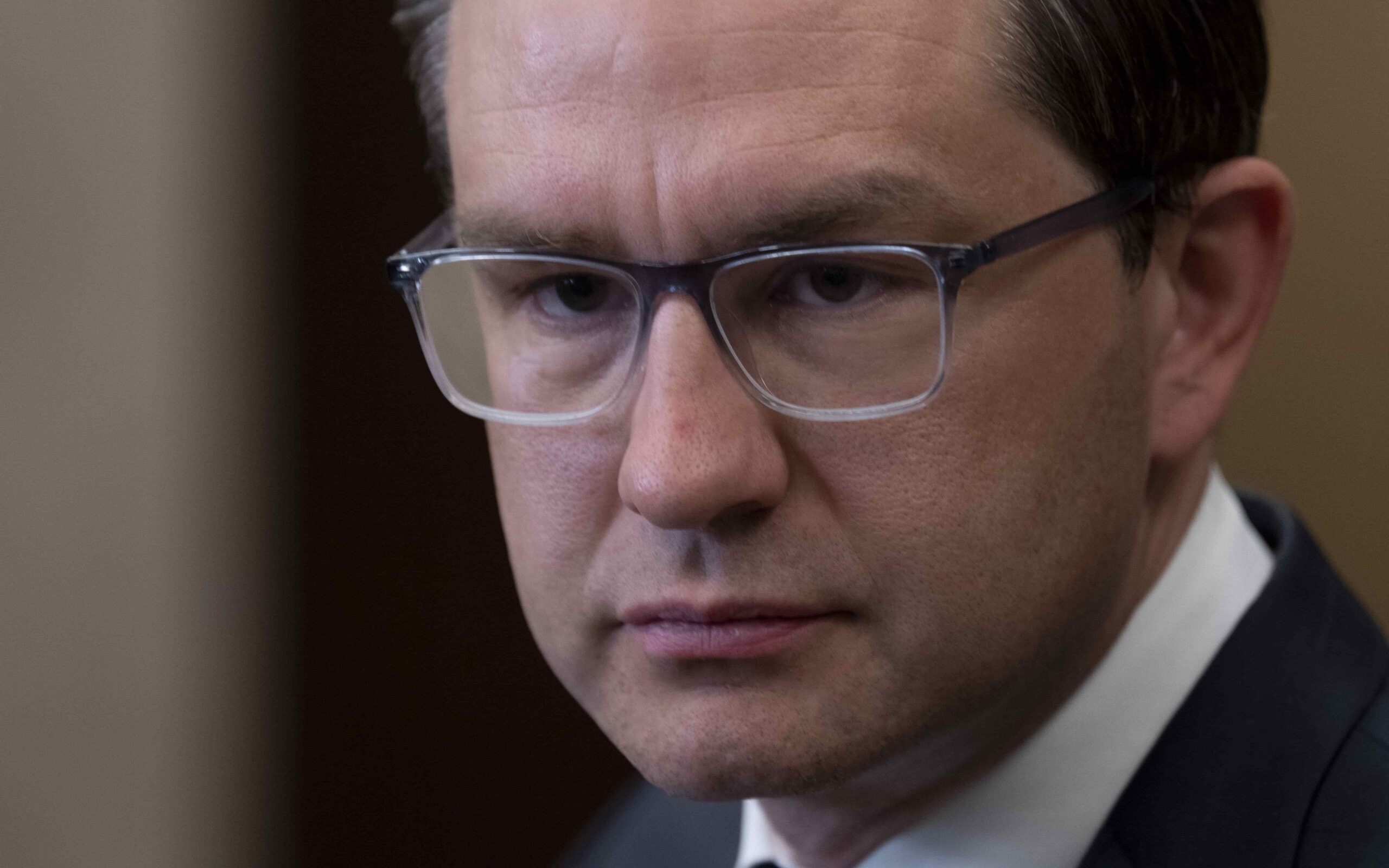The elevation of Pierre Poilievre to leader of the Conservative Party promises a much more acrimonious time in Parliament, as Poilievre has spent his career believing himself to be a pugilist. His rhetorical style tends to be smarmy, playing to the backbenches with quips he feels to be clever, but really aren’t. During debate, he behaves as though he’s Matlock, deliberately confusing facts and applying them with bluster in the hopes that his opponents will offer a witness-box confession and “admit” that they are wrong about whatever his issue of the day is. And if anyone thinks that he’s going to be kinder or gentler now that he’s secured the party leadership in order to reach the country’s political centre, where the votes are typically believed to be in a general election, well, that’s not going to happen.
An avowed rage-farmer and shit-poster, Poilievre has somehow convinced the Conservative rank and file that he is some kind of “master communicator,” who can reach the average Canadian. And sure, he’s got some element of flash, but there’s no substance to it. He generally offers misinformation or outright disinformation, and dismisses expert opinion or commentary as being the work of those who are out of touch, or “gatekeepers. These are the hallmarks of a populist, for whom the world is bifurcated into dangerous “elites” and oppressed common people. Do not expect rational discourse or reasonable exchanges of ideas. No, Poilievre needs to be seen to be beating up on those who are accused of “looking down on”—or keeping down—his base.
“An avowed rage-farmer and shit-poster, Poilievre has somehow convinced the Conservative rank and file that he is some kind of ‘master communicator’ who can reach the average Canadian.”
In many cases, you would expect the progressive response to such a leader would be to call out his racism and the white supremacy of his ideology, or arguing that the Conservative Party is full of social conservatives who would deny our right to bodily autonomy or our queer and trans rights. But Poilievre’s story complicates the ability to use these kinds of narratives.
For one, Poilievre’s wife is Venezuelan, and they have two mixed-race children, which might inoculate the Tory leader against charges of racism or white supremacy. You can point to all of the times that Poilievre met with or played footsies with far-right extremists who do espouse white supremacy, but it’s hard to make those connections stick. Poilievre loudly denounces extremist ideologies as often as he panders to those who espouse them.
It’s that two-faced posture of Poilievre that makes him so dangerous. He chose Tim Uppal, who is Sikh, as one of his two deputy leaders. This isn’t unsurprising for a party that needs the votes of suburban ethnocultural communities, and looks to immigration to fill labour shortages. In the Stephen Harper era, it was the job of Jason Kenney to visit these communities and play up their shared socially conservative values, with a lot of not-so-veiled opposition to things like LGBTQ2S+ rights, as well as legalizing drug use or sex work. As immigration minister, Kenney was also trying to draw lines between “legitimate” immigrants and asylum seekers, who were derided as “queue-jumpers,” even though there is no actual queue. As Poilievre was a student of Kenney’s, we can expect him to continue much in this vein.
When it comes to queer communities, Poilievre is even more complicated. His adopted father came out later in life and is currently in a same-sex relationship—a fact that Poilievre never addressed publicly until he had secured the leadership. Since being elected in 2015, Poilievre has voted against any and all measures to extend rights and protections to LGBTQ2S+ people, including same-sex marriage. Another of his political mentors was John Baird, who was out, but media-shy about it (and it was Baird who dubbed Poilievre “Skippy,” a nickname that has stuck). Poilievre also named Jewish lesbian MP Melissa Lantsman as his other deputy leader, and has appointed Eric Duncan, the party’s only other out MP, to his leadership team in the role of caucus-party liaison.
One of Poilievre’s campaign promises is to be “anti-woke,” though he doesn’t define what that is supposed to mean. It’s a dog whistle to those who believe diversity and inclusion to be bad things—and more to the point, who believe they are leading to societal decline. This should be concerning to the LGBTQ2S+ communities, whose interests are unlikely to be safeguarded by a potential Poilievre-led government in any meaningful way. While Poilievre has not been a steadfast social conservative over his career (and groups like Campaign Life Coalition didn’t deem him suitably anti-abortion enough to merit their endorsement), he likely wants them to be happy in the party, because social conservatives tend to be the part of the membership that can be counted on for volunteer hours and fundraising. It should be noted that social conservatives did not play the role of kingmaker in this leadership contest as they had in previous ones and, as a result, he may feel less beholden to them.
All of this is going to make opposition to Poilievre difficult, because he is able to evade the default narratives. Call him a racist or a white supremacist, and he’ll remind you of his family and Uppal as his deputy. Call him a homophobe, and he’ll point to his gay dad and Lantsman and Duncan on his team. Try and fight him with facts, particularly on some of his complete economic nonsense, and he’ll bluster and accuse you of being out of touch. Point out that he’s undermining the fundamental institutions of democracy and he’ll just shout “freedom!” as though Canada weren’t already one of the freest countries in the world. Call him out for not answering questions, and he’ll just brand you a partisan opponent.
This is why I worry that we’re going to be poorly equipped to deal with Poilievre and this brand of populism, especially as his electoral calculation appears to be to appeal to the more disaffected Canadians on the further right end of the spectrum, who tended not to vote (until Maxime Bernier took up their cause). The kinds of people who were responsible for the occupation in Ottawa back in February.
Sadly for the future of political discourse in this country, Poilievre’s support does not come from rational actors. He is promising to punish the people whom a large swath of Canadians believe are holding them back from being “free.” It’s all nonsense, of course, but dangerous nonsense. Countering it is going to be a unique challenge.


 Why you can trust Xtra
Why you can trust Xtra


